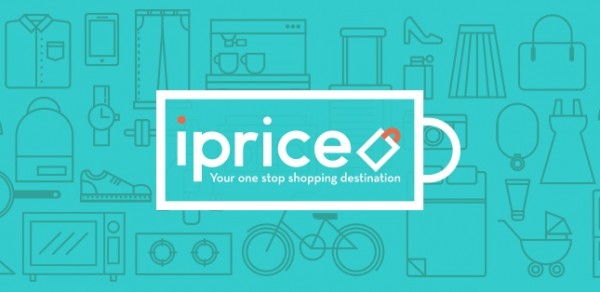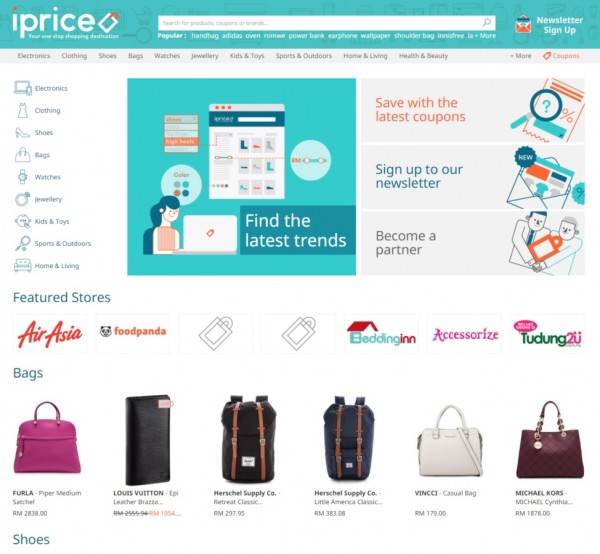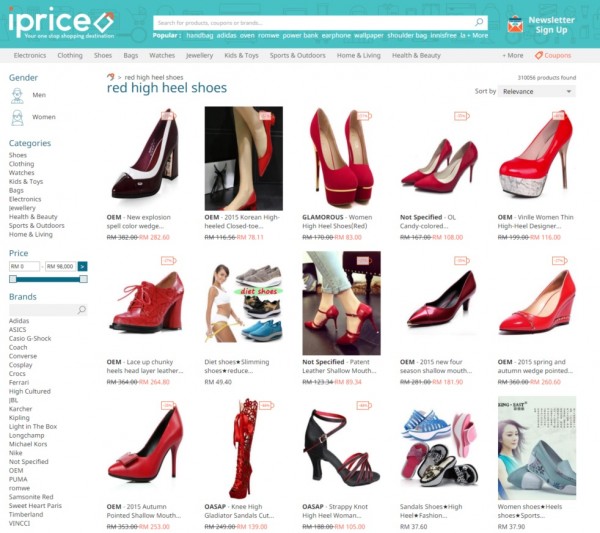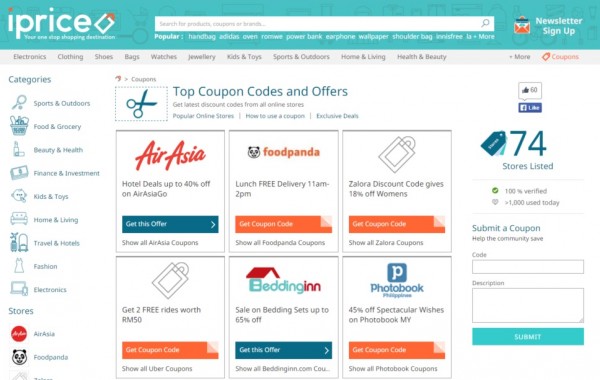One of the best parts of shopping online isn’t just the convenience of never having to get out of the house to find what you want, but to be able to get some seriously good deals with just a few mouse clicks. On the other side, it also strips away the joy of window shopping, of casually searching for something you have in mind. iprice, the Malaysia-based shopping destination and also the region’s largest affiliate network, aims to bring back this experience of discovery in online shopping.
Founded just over a year ago, iprice is based in Malaysia but soon started operations in six other countries in the region: Singapore, Vietnam, Philippines, Indonesia, Thailand and also in Hong Kong. In May this year, the company received a $550,000 funding from Asia Venture Group to create the largest online shopping community in South East Asia. With the company already operating in six of the largest markets in the region, iprice is on track to meet that goal.
But what exactly is iprice? If you’ve searched Google for e-commerce coupons, chances are you’ll see an entry for iprice near the very top of the search results. With an astonishingly powerful search engine optimisation, it’s hard not to notice. Besides being a repository of e-coupons and voucher codes that can be used across its network of affiliate vendors (at last count there were already over 100, including giants such as Lazada, Zalora and Qoo10), the company is also known as the “Google of e-commerce”.
 Heinrich Wendel, co-founder & CTO, iprice
Heinrich Wendel, co-founder & CTO, iprice
The comparison is somewhat accurate, because iprice works almost similarly to Google, but its search engine is exclusive to just e-commerce products – and with a strong difference: iprice works best for the discovery of products, and not for something particular. As co-founder and CTO, Heinrich Wendel says, iprice is perfect for those who are looking for something in general, like a pair of red high heel shoes, instead of something specific, like “Samsung Galaxy Note 5 32GB Dual SIM Gold Platinum”.
As such, it is easy to see why this would benefit those looking for fashion items. Search results are all displayed visually, and once you click on an item you are directed straight to the merchant’s website in a new browser tab – so you can always go back to the search results. With over 3 million items in its database across its various partners, iprice aims to emulate an “offline” shopping experience.
Wendel explains that the search engine’s algorithms analyse and collect data for the main criteria and filters them for the consumer. Its machine learning algorithms also mean you get better search results the more you search on the site, while also allowing you to filter results based on merchants, brands and other options. This, along with a repository of coupons for its merchants, makes iprice significantly different from any competitor in the region.
Wendel’s approach on iprice is strongly reflected by his Microsoft background, where the focus is on elements that the user would need and nothing more. The search engine on iprice is easily the most prized possession for the company, and is one that was built from the ground up by Wendel. Having been with Microsoft for four years as a project manager, Wendel resigned from his post to work on the iprice model. On a trip to Malaysia while serving his notice, Wendel took a liking for the country, and immediately decided to set up the iprice base in Kuala Lumpur.
Today, the entire iprice operations in the region runs from the KL HQ, with over 60 employees and expanding aggressively. During our conversation, Wendel says that he is considering leasing another, significantly larger office space. As operations in other markets mature, the company may eventually open up offices in those markets, too. But for now, given the city’s strategic location in the region, Kuala Lumpur will remain the hub for iprice’s operations.
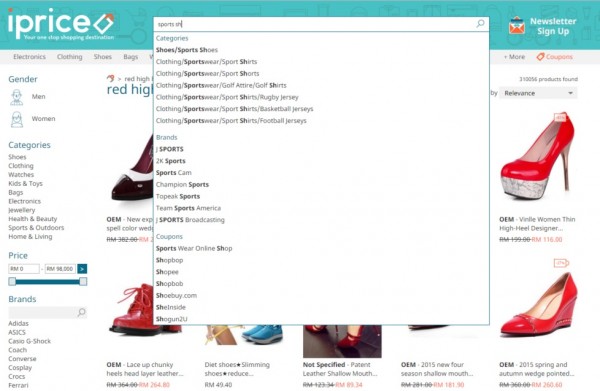 The iprice search box also gives suggestions as you type, offering a mix of brands, product categories and a selection of coupons you might like.
The iprice search box also gives suggestions as you type, offering a mix of brands, product categories and a selection of coupons you might like.
Nine months since going live, the iprice.my domain now attracts over a million monthly visitors – not too bad at all for a site that does not run any form of marketing on social media or traditional platforms. This increased traffic is also a win-win situation for iprice’s affiliated vendors – the referral rates are on average 2-3 times higher than on Google, and with huge conversion rates on sites like Zalora.
Despite (or perhaps because of) the encouraging growth, the company is not slowing down. In fact, Wendel and his engineers are continuing to fine tune the backend and search engine algorithms with a data-driven approach, and tweaking the site to enhance the overall user experience based on data of how its current users use the site. There will be new features as well, including a mobile site for those visiting iprice on smaller screens. The company is also strongly expanding its affiliate network and forging strategic partnerships, with the most recent being an exclusive deal with a local media network to display its coupons on their sites.
 On its official Facebook page, iprice will also offer a special “Coupon of the Day” with big savings on a particular product.
On its official Facebook page, iprice will also offer a special “Coupon of the Day” with big savings on a particular product.
With the volume of global e-commerce shopping expected to rise by as much as 500% within the next five years, iprice has quickly positioned itself to be the first stop for online shoppers looking for bargain coupon codes – while at the same time offering a new, old way of shopping for the new generation of shoppers.
Follow us on Instagram, Facebook, Twitter or Telegram for more updates and breaking news.



